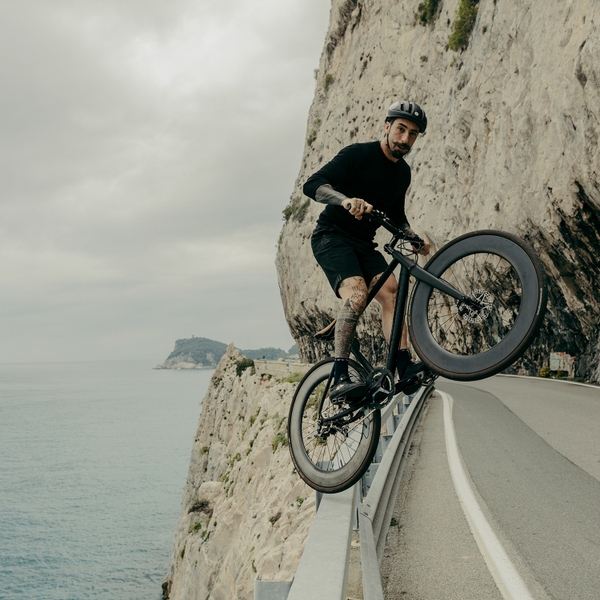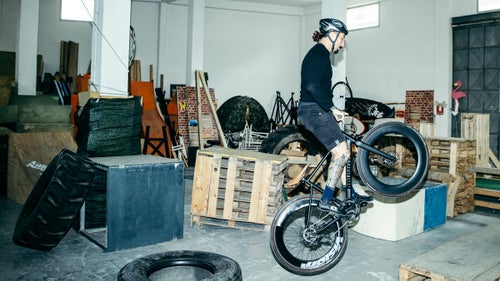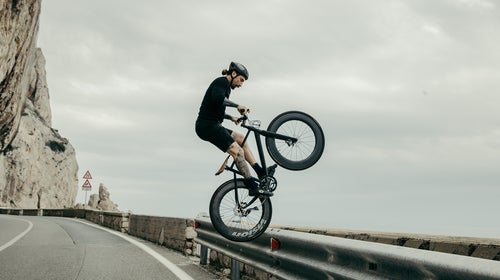Vittorio Brumotti Serves Vigilante Justice on a Bike
Coronavirus hasn't stopped Italian heartthrob and two-wheeled avenger Vittorio Brumotti from righting society's wrongs. The cyclist has delighted audiences with his TV news segment "100% Brumotti," shaming people for parking in handicapped spaces and taking on no less than the Mafia. We ride along with Italy's favorite bike hero.
New perk: Easily find new routes and hidden gems, upcoming running events, and more near you. Your weekly Local Running Newsletter has everything you need to lace up! .
It’s a Wednesday evening in March, and the coronavirus pandemic is ravaging Italy. The viewers of Striscia la Notizia, a popular satirical news program, are shown “100% Brumotti,” a segment in which Vittorio Brumotti, a noted trick cyclist, roams Italy on his bike combating various social ills.
is a little different. It opens with Brumotti, 40, in the attic bedroom of his parents’ home in the seaside region of Liguria, where most citizens, like the rest of the country, are under emergency lockdown. He greets viewers and introduces us to his girlfriend, Annachiara Zoppas, who lies on a couch reading Anne Frank’s The Diary of a Young Girl. He jumps on his bike, does a few stunts on the balcony, then rolls down the interior stairs. He navigates a narrow turn, descends more stairs, and emerges in the kitchen, where his mother, Elisabetta, is cooking. He bunny-hops onto the kitchen table, his mom smiling indulgently.
After mowing the lawn (still on the bike, now pushing a mower), he jumps (sans bike) into a hammock. Toward the end, he shows viewers that he actually crashed on his initial attempt at the table leap. “Friends, listen, don’t believe everything you see,” he says.
In a country where just about every aspect of life has changed, it was nonetheless surreal to see the high-flying Brumotti grounded at his parents’ house. Here was a man who has set numerous Guinness World Records, for feats like “highest jump into water on a bicycle” (17 meters, into the Tyrrhenian Sea) and (nearly 4,000 in all, in Dubai’s Burj Khalifa). Now here he was, relegated to clowning around at home.
But the situation was only temporary, and for Brumotti, some things hadn’t changed at all during the pandemic. Armed with his bike, four GoPros, and a face mask, he was still pushing ahead a bombozza—“full throttle,” a kind of personal motto—with his mission of being both an entertainer and a social avenger on two wheels.









